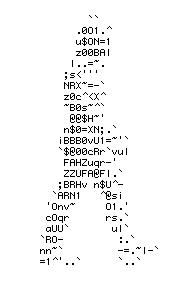Die EPIC 2014-Epidemie
Die Zukunfts-Visions-Präsentation von Robin Sloan and Matt Thompson "EPIC 2014" verbreitete sich in Windeseile im Netz. Eine wahre Epidemie mit entsprechenden Nachwehen:
Whoah dudes! EPIC is popular! Right now you can see it at these fine sites: http://www.robinsloan.com/epic/
If you've got some bandwidth to share, give me a shout -- robin at robinsloan dot com. The future needs your help!
Dazu schreibt Robin Sloan bei poynter.org:
First, the ecology of the internet is amazing: One week after posting it, this link has zapped around the world and been seen by thousands of people, some of whom write in Spanish, in Belgian, and in Asian languages this Chaser cannot identify. It's been fascinating to see it get lost within chains of recommendation: This Chaser saw the phrase "I can't remember where I got this link" more times than he is, to be honest, quite comfortable with.
Second: For all our techno-triumphalism, the blogosphere still leaves a bit to be desired. EPIC earned thousands of links but only a few really engaged comments. It was sites like MetaFilter that generated discussion; most blogs were content to link and say "looky here."
So that's how you follow an idea, Chasers. Have you tracked your news organization's work through the web recetly?
Whoah dudes! EPIC is popular! Right now you can see it at these fine sites: http://www.robinsloan.com/epic/
If you've got some bandwidth to share, give me a shout -- robin at robinsloan dot com. The future needs your help!
Dazu schreibt Robin Sloan bei poynter.org:
First, the ecology of the internet is amazing: One week after posting it, this link has zapped around the world and been seen by thousands of people, some of whom write in Spanish, in Belgian, and in Asian languages this Chaser cannot identify. It's been fascinating to see it get lost within chains of recommendation: This Chaser saw the phrase "I can't remember where I got this link" more times than he is, to be honest, quite comfortable with.
Second: For all our techno-triumphalism, the blogosphere still leaves a bit to be desired. EPIC earned thousands of links but only a few really engaged comments. It was sites like MetaFilter that generated discussion; most blogs were content to link and say "looky here."
So that's how you follow an idea, Chasers. Have you tracked your news organization's work through the web recetly?
Cyberwriter - 29. Nov, 22:24 - online Journalism
0 Kommentare - Kommentar verfassen - 0 Trackbacks




















